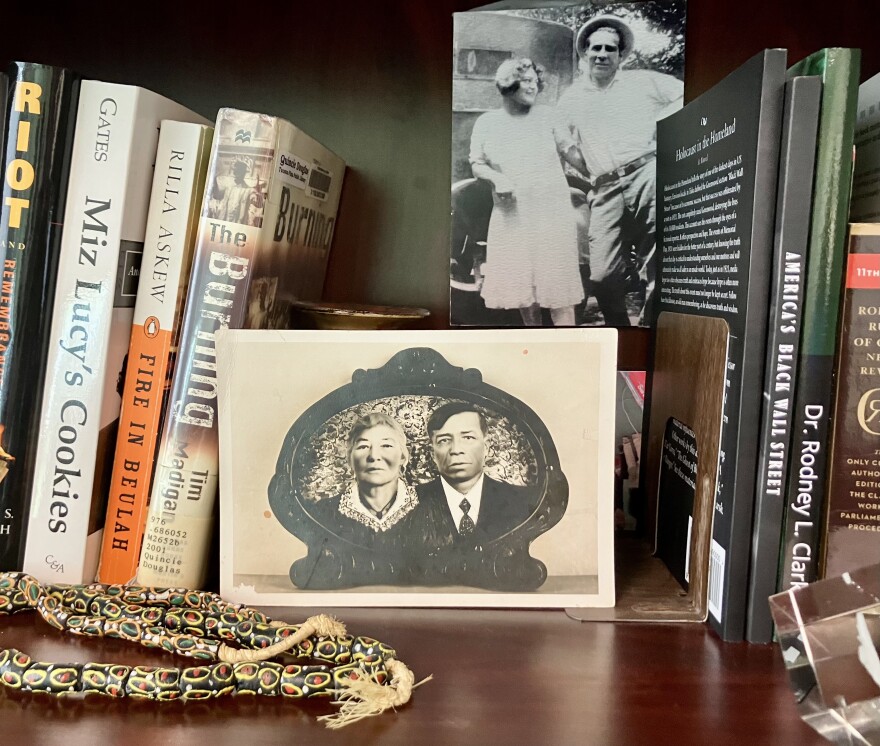Michelle Burdex has a framed copy of the Emancipation Proclamation in her office at the Greenwood Cultural Center. She keeps it around as she researches her family history that includes the pain of slavery.
“I think the older I get, and the more I learn about our history, it just becomes so much more significant to me, so much more real,” said Burdex.
A talented blacksmith given as a wedding present is one of Burdex’s ancestors. But, not long after he was exchanged, Abraham Lincoln signed the Emancipation Proclamation. Two and a half years later, on June 19, 1865, federal troops arrived in Galveston, Texas to make sure the proclamation’s promise of abolishing slavery was realized.
In the years that followed, Burdex’s great grandfather became one of the first Black men in Kansas to own his own land, business, and home.
Now, Burdex says the holiday marking the effective end of slavery symbolized by the Galveston arrival — Juneteenth — is a time to remember how freedmen and their descendants seized newfound rights to provide for their families.
“They were proud to do that. They were committed to doing that. So, for me, Juneteenth is all about remembering. Remembering that history, and acknowledging that, and knowing we are descendants of that courage, that strength, that resilience.”

Others in Greenwood are also thinking of their ancestors on Juneteenth. Justice for Greenwood, a nonprofit, held a genealogy workshop in honor of the holiday where KJRH reported some Black Tulsans began exploring their roots for the first time.
In a Facebook post, Justice for Greenwood’s founder, Damario Solomon-Simmons, encouraged Black Tulsans to seek out their stories that are harder to find due to the way slavery separated families.
“The loss of personal histories is deeply felt through our DNA for generations,” wrote Solomon-Simmons.
To learn more about Juneteenth and about how to research genealogy, visit the Tulsa City-County Library’s African-American Resource Center.



